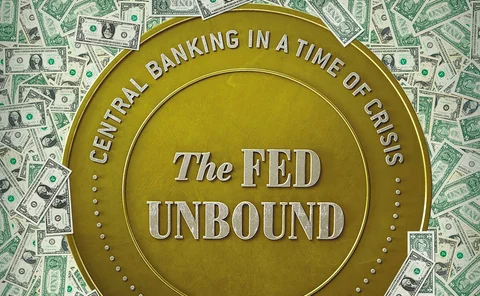Central Banking Journal
Will the dollar remain the world’s reserve currency?
Bank of Russia sanctions are unlikely to undermine the US dollar’s central role in reserve portfolios. But a relative decline in US economic weight and technological innovation are benefiting other currencies
Bank of Mexico’s battle to restore price stability
Despite presidential attacks, former officials say a solid institutional framework preserves central bank autonomy – likely a key asset in the battle against inflation
Tactical and strategic ETF use in reserves
Panellists discuss liquidity, oversight and risk management frameworks around using ETFs to diversify portfolios at a Central Banking roundtable discussion, in collaboration with Invesco
Opportunities to diversify with ETFs now and looking forward
Matthew Tagliani, exchange-traded fund (ETF) head of product and sales strategy, Emea at Invesco, explores the diversification impacts ETFs can have on central banks’ portfolios
How to run a world-class economics department
Benchmarking data shows central banks have myriad ways of organising their economists. So how do some of the world’s top research organisations do it?
Book notes: The money minders, by Jagjit S Chadha
This book acts as an invaluable primer on money-credit-fiscal theory and practice
Gontareva on Ukraine’s funding, NBU policy and reconstruction
Former NBU governor Valeria Gontareva speaks about donor funding shortfalls, NBU policy and financial stability challenges, Nabuillina and the seizing of Russian assets, and post-conflict rebuilding and modernisation
Book notes: Can’t we just print more money?, by Rupal Patel and Jack Meaning
A genuinely readable but non-neutral introduction to economics
Taking a cue from the top: governor turnover and independence
Central bank governors tend to have long tenures, but what that means can vary. High turnover remains a worrisome signal
Book notes: The Fed unbound, by Lev Menand
Instead of the Fed expanding its tasks to meet shadow banking needs, this book calls for charter-like oversight of NBFIs
Is money growth really the main inflation culprit?
Jakob de Haan and Jan-Egbert Sturm take a closer look at inflation in the eurozone and Switzerland
The PBoC, real estate debt and financial stability in China
Central bank policy-makers are restricted in terms of capacity and space by their efforts to manage the nation’s property bubble amid declining growth
Ukraine’s wartime economy faces possible crisis
Foreign donors must increase financing of Ukrainian government, NBU ex-governor and current government adviser argue
How central bank mistakes after 2019 led to inflation
Central banks must acknowledge their own mistakes and outline concrete steps to restore the public’s confidence in their ability to ensure price stability, write Graeme Wheeler and Bryce Wilkinson*
The case for restoring the role of monetary aggregates
Tim Congdon argues that a surge in money supply in response to Covid-19 sparked heightened inflation and central banks need to refocus their attention on monetary aggregates
BoJ unlikely to move policy to counter yen weakness
The Bank of Japan is wary of raising rates or even increasing its yield control target to tackle yen depreciation, which it views as being exacerbated by foreign speculators, writes Sayuri Shirai
Rethinking regulation of the modern financial system
Bank of Italy’s Maurizio Trapanese writes that rules need to address uncertainty as well as measurable risks, entity types as well as activities, and should not be overly complex
Book notes: Harry White and the American creed, by James Boughton
This book offers a deeper understanding of the hugely influential IMF founder and his work, but fails to resolve espionage charges
(Un)stablecoins and central banks
Time to tackle stablecoin structures and support mechanisms
Legal certainty: the Achilles’ heel for CBDCs?
Many central banks lack legal certainty when it comes to issuing digital currencies, despite all the research and trials. Isn’t it time to get the lawyers involved?
Filipe Dinis on Bank of Canada’s cyber strategy and tackling cyber risks
The Canadian central bank’s chief operating officer calls for heightened vigilance, more collaboration, info sharing and tabletop exercises, and less reliance on similar, siloed systems
Banknotes: April to June 2022
A round-up of news and salient issues that have affected central bankers in the past three months
People: April to June 2022
A round-up of central bankers in the news and on the move during the past three months
The signal and the noise: cash forecasting in uncertain times
From big data tools to Arima models and structural time series, cash forecasting methods are evolving. The work could prove critical to the future of cash during uncertain times























